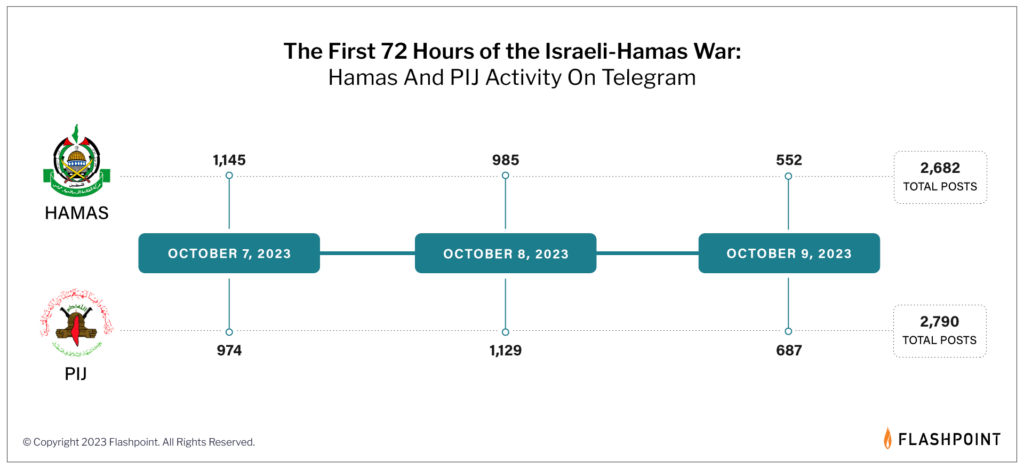
2023-10-17 04:17:21 Author: flashpoint.io(查看原文) 阅读量:22 收藏
The Israel-Hamas War, or as some refer to it as the Israel-Gaza War, poses crucial inquiries regarding the region’s future stability, especially when considering the intricate interplay of cyber, physical, and geopolitical security challenges. In this article we delve into the multifaceted, ever-evolving conflict landscape, with a goal of decoding the conflict’s intricate dynamics, including the nexus of cyber threats, hacktivism, military operations, and broader geopolitical implications.
For intelligence professionals, security experts, policymakers, and anyone invested in comprehending this complex conflict, our insights aim to keep you informed as the war unfolds, leveraging our intelligence to deliver clarity amidst the chaos.
Digital frontlines: OSINT in the Israel-Hamas War
Open source intelligence (OSINT) continues to be a driving force in modern warfare. If harnessed, publicly available information (PAI) can bring real-time insights into global events—especially the Israel-Hamas War.
This is what we’ve seen unfolding so far in the digital battlefield:
Telegram’s role in the Israel-Gaza War
Open source intelligence platforms such as Telegram are proving to be indispensable both for militant groups and intelligence professionals. As seen in the Ukraine-Russian War, Telegram is being used as a rallying point for Hamas and the PIJ, where their members are sharing propaganda and real-time updates related to the war effort. On the opposite side, intelligence operators are monitoring their Telegram channels in attempts to circumvent militants and document war crimes.

In just the first 72 hours of the Israel-Hamas War, Flashpoint found that a total of 5,472 Telegram posts were shared between multiple channels operated by Hamas and the PIJ:

Hacktivism in the Israel-Hamas War
The strained and nuanced nature of the Israel Palestine conflict has not only divided the public, but cybercriminals as well—with multiple hacktivist groups siding with, or against Israel—choosing to support Hamas or the general Palestinian territories due to opposition of Israel’s diplomatic partners.
Dozens of pro-Israel and pro-Hamas hacktivist groups are active online and communicating using social media channels such as Telegram and X (formerly Twitter). While it is unclear how many groups are actively coordinating attacks due to the conflict, prominent hacktivist groups, including Anonymous Sudan and Killnet (see below), have announced their involvement in cyberattacks targeting institutions in both Israel and the Palestinian territories.

At this time, the following hacktivist groups have declared support for either Israel, Hamas, or the Palestinian territories:
- INDIAN CYBER FORCE (Pro-Israel)
- Mysterious Team Bangladesh (Pro-Hamas)
- Killnet (Anti-Israel).
- Killnet launched a new Telegram channel dedicated to Palestine-related activities and “standing against Israel and anyone who supports the Zionist Entity.”
- AnonymousSudan (Anti-Israel)
- AnonGhost (Pro-Palestine)
如有侵权请联系:admin#unsafe.sh